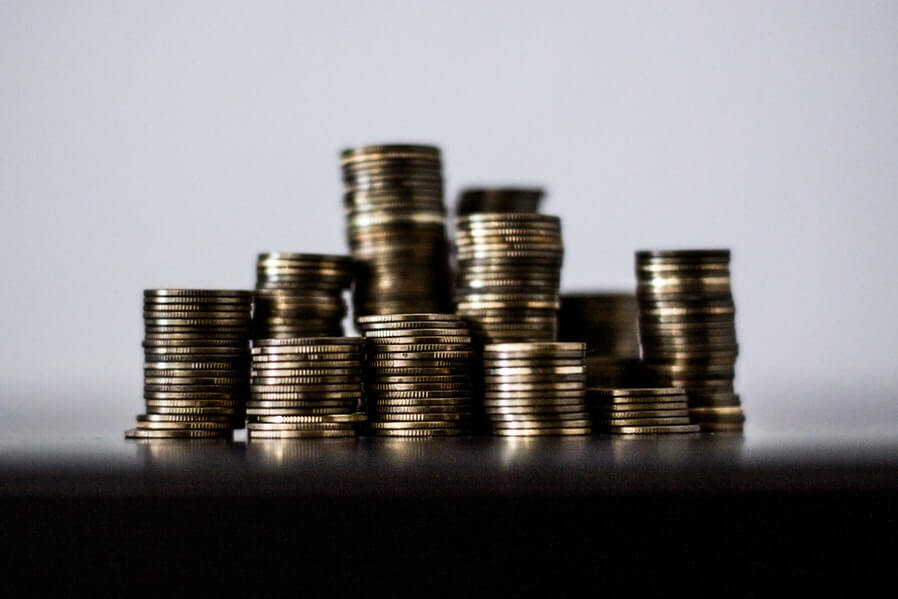Are you waiting to hit the lottery before starting your retirement fund? You might be running late. Time is your friend in building a long-term investment. Your money in a time deposit placement will earn you more in a 15-year period than in a shorter 5 years. Its earnings roll over on a monthly, quarterly or annual basis. The same goes with condo renting. The longer you rent out your unit, the bigger chances you have of fully repaying its mortgage and start profiting from it.
So what's holding you back? Being a newbie employee is no excuse. Keep in mind that it's not your income that truly has an impact on your finances but your spending habits. Here are 10 long-term investments to try today.
The fixed income fund

Photo Courtesy of Tookapic via Pexels
A fixed income mutual fund is invested in a basket of government securities, corporate bond, loans and bank deposits. This fund offers returns higher than banks with risks lower than that of an equity fund. The fixed income fund is perfect for an investment horizon of less than 10 years. If you're investing directly in the bond market, you may need a minimum of Php100,000 excluding fees on the fund manager. Thanks to mutual funds, you can start building your retirement pot for as low as Php5,000.
The equity fund

Photo courtesy of energepic.com via Pexels
If you want to shoot for higher returns, you may invest in an equity mutual fund. This fund is placed in various equity securities or shares of stocks. It may be allocated in different industries such as food and beverage, real estate, service, telecommunications and holding companies. A majority of the investments in an equity mutual funds are blue chip stocks, or shares of stable and reliable companies. Investing in blue chip stocks on your own can cost a fortune. However, with an equity mutual fund, you can participate in the stock market for Php5,000, and add investments for a minimum of Php1,000 anytime.
The balanced fund

Photo courtesy of Tim Gouw via Pexels
Are you a newbie employee and neophyte investor? You can begin your investing journey with a balanced mutual fund. Ideally, this fund is 50% fixed income securities and 50% equity securities, though the fund manager may adjust based on market analysis. The balanced fund is a basket of investments that offers the security (fixed income) that you may need as you “get the feel” of investing, but with a kicker (equities) so you maximize your money. You can start your balanced mutual fund for Php5,000.
The Unit Investment Trust Fund

Photo courtesy of Buenosia Carol via Pexels
The Unit Investment Trust Fund (UITF) is a pooled fund that is invested in fixed income, equities, and money market securities. It's essentially similar with a mutual fund with a few differences. In mutual funds, you're a shareholder of the fund, thus you're entitled to various rights such as the right to open the books and receive dividends if so declared. In a UITF, you're in a trust-trustee relationship in which you're the trustor and the bank is the trustee. Think of UITF investing as having your own slice of a pizza in which each piece is referred to as a “unit of participation.” You can open your UITF with a minimal Php10,000.
The Variable Life insurance

Photo courtesy of Pixabay via Pexels
One important thing you must know is that the purpose of an insurance is different from an investment. Generally, an insurance serves as a safety net during unforeseen events that result to a loss of income. These include death of the breadwinner of the family, accident or illness. An investment is designed to meet long-term expenses such as your child's college education, a new house or retirement. Today, insurers are offering the Variable Life that combines insurance cover and investment. A portion of your premium payments go to the insurance cost and some are invested in your choice of fund. It’s like getting the best of both worlds. The premium will depend on your profile (age, lifestyle, medical history).
The time deposit account

Photo courtesy of Pixabay via Pexels
A time deposit is a bank product that offers a fixed-interest rate upon reaching a maturity date. The terms of placement range from 30 days to 360 days. You have an option of rolling over your placement for another period with the earned interest. A time deposit offers an interest rate higher than savings accounts. It's locked in for the duration of the placement so you won't be able to withdraw at your whim. You can open a time deposit account for as low as Php10,000.
Condo rental

Photo courtesy of Pixabay via Pexels
Condo rental is a viable long-term investment you should explore. A condo for rent in the Philippines can earn you a monthly income of at least Php15,000. In fact, your rental income can pay for the mortgage without you needing to shell out any amount until it's fully paid. DMCI properties offer a flexible payment scheme in which you can choose a lower downpayment and longer paying period. Condo living is a trending lifestyle in the Philippines. You won't have a hard time looking for tenants all year 'round.
Pieces of jewelry

Photo courtesy of Photo Mix via Pexels
Gold and precious metals are considered as safe havens. Whenever the capital markets are too unstable such as during the US financial crisis, investors run to these investment options. The value of gold can fluctuate like that of listed stocks, though the former is not as volatile as the latter. You can buy gold in forms of jewelry such as earrings, necklaces or bracelets. Think twice about flaunting it. These are not supposedly to accessorize you but to build up your money over time. Keep them in a safe in your house or in a safety deposit box in the bank.
Further studies

Photo courtesy of Pixabay via Pexels
Your parents may have told you a million times that “education is your best investment.” This cannot be truer in this time of stiff competition in the workplace. Each year, tens of thousands of fresh graduates join the labor market. They're young, vibrant and skilled. How are you going to keep your competitive edge? Earn a graduate or post-graduate degree. There are executive classes for working students so your school studies will not interfere with your office schedule. Further studies will not only boost your credentials, but also open opportunities such as a teaching post or entrepreneurship.
Learn new skills

Photo courtesy of Tranmautritam via Pexels
Don't have time to go to graduate school? Why not learn a new skill on your free time via the Internet? Welcome to Google University where you can get instructional videos on a wide range of subjects from culinary to computer programming. Not all investments are in monetary form. Your time is your most valuable asset, so make the best of it. Learn new skills and establish additional sources of active income. You can study about medical transcription, digital marketing or blogging. These can open the doors for an extra job or even a future career.
It's never too early to start investing. The earlier you start, the better. Explore long-term investment channels today.










